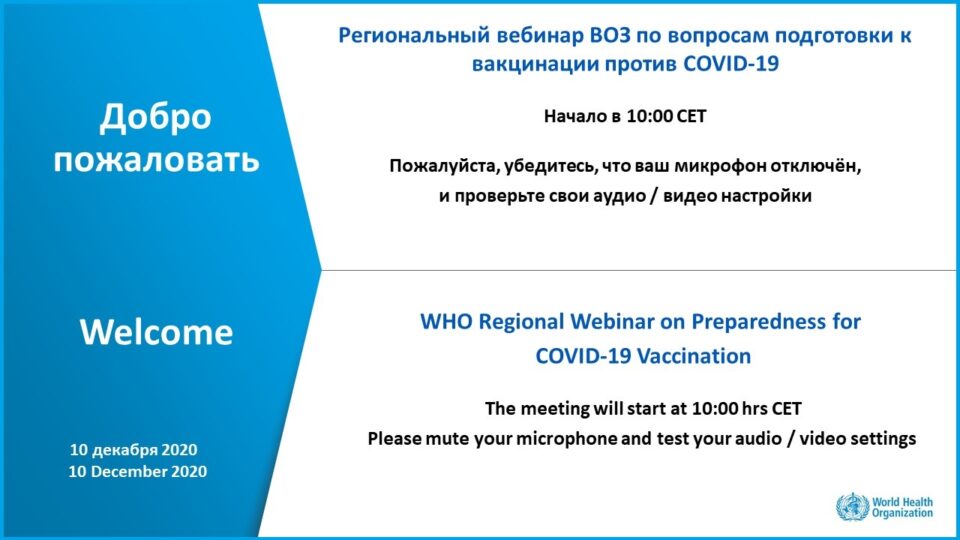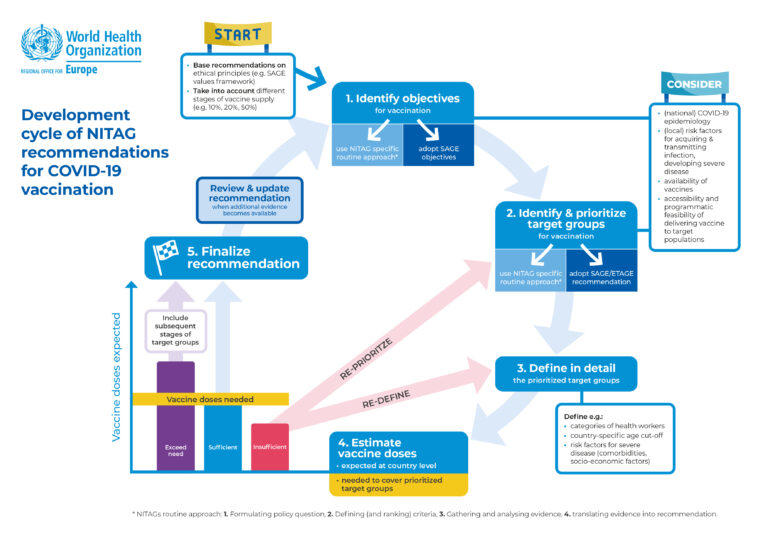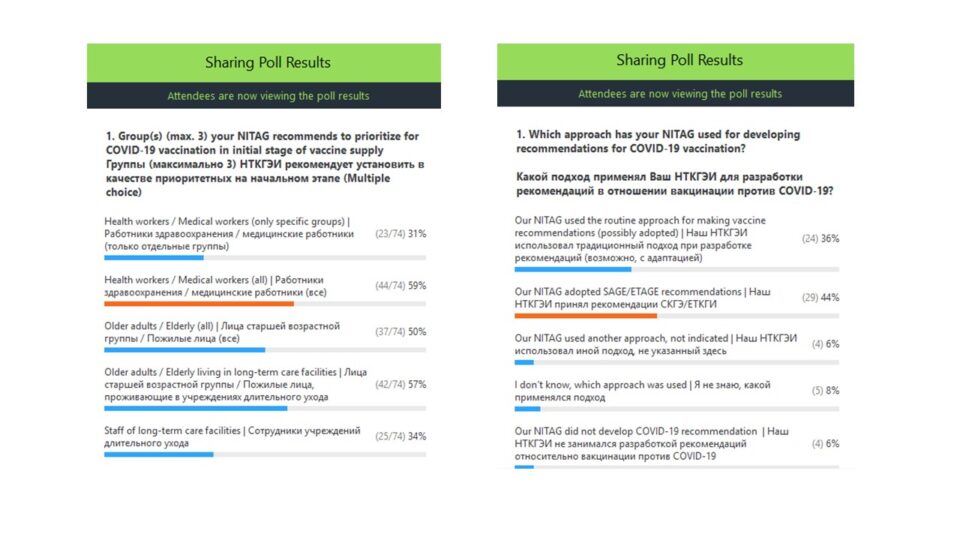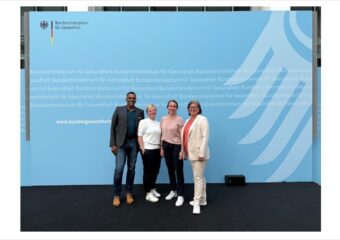New challenges? – New formats! Virtual Support of National Immunization Technical Advisory Groups during the COVID-19 Pandemic
During the ongoing COVID-19 pandemic National Immunization Technical Advisory Groups (NITAGs) face various challenges: NITAGs normally develop recommendations based on a broad body of evidence. But during the COVID-19 pandemic, evidence needed to develop recommendations e.g. on risk factors for severe and fatal courses or effects of COVID-19 variants on vaccine effectiveness is scarce, constantly evolving and is often only available in English language. Still NITAGs need to develop recommendations e.g. on the prioritized use of COVID-19 vaccine when supply is limited or for specific COVID-19 vaccines available in their countries.
To address these challenges, RKI together with the WHO Regional Office for Europe initiated a series of webinars for NITAGs and experts in the region as part of the joint EURO NITAGs project. In the monthly webinars up-to-date information on COVID-19 vaccines was presented, recommendations developed at the global, regional, and national levels shared, and experiences in developing and implementing vaccination recommendations discussed among member states. As different circumstances in the country can lead to different recommendations this direct exchange allowed to learn from those involved in recommendations-making about the backgrounds of developed recommendations.
The access to the webinars was kept as simple as possible: prior registration was not necessary, simultaneous translation into English and Russian was offered, and presentations and relevant documents were translated and sent to the invitees in a timely manner, sometimes even prior to the webinar. Polls conducted during the webinars enabled to adapt the format and topics of the webinars to the interests and experienced challenges of participants (furthermore, they loosened up the atmosphere!).
The webinars provided an uncomplicated and, above all, time- and resource-saving possibility for exchange among experts from the WHO European Region involved in developing recommendations on COVID-19 vaccination. The new format that allowed a timely sharing of relevant information was well-accepted by the participants: People from 50 of the 53 member states participated in at least one of the 6 webinars conducted, the number of participants per webinar ranged between 100 to 220 (although the actual number most probably was higher, as in countries where internet connection is limited several participants gathered in one room to join the webinar). From the replies in the polls, many participants would appreciate the continuation of the webinars even after the pandemic.
The virtual format should not completely and permanently replace real meetings among NITAGs in the WHO-EURO-Region. However, it enables a larger audience to participate in regional meetings and to exchange information and experiences directly between experts.
More information about the webinars and the provided support of WHO Regional Office for Europe can be found in the published article from 16 September 2021 „Supporting National Immunization Technical Advisory Groups in the WHO European Region in developing national COVID-19 vaccination recommendations through online communication platform”
https://doi.org/10.1016/j.vaccine.2021.09.034





